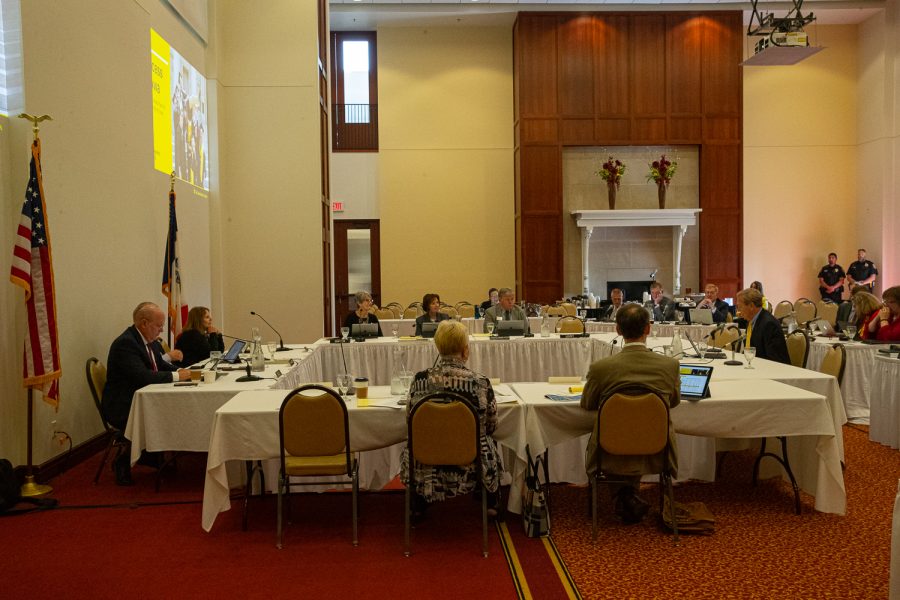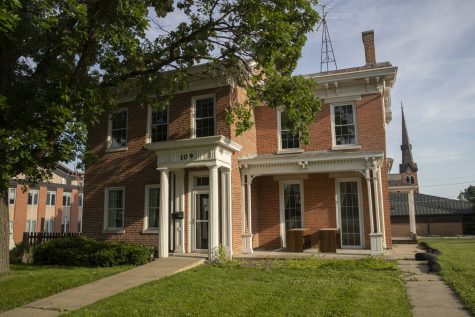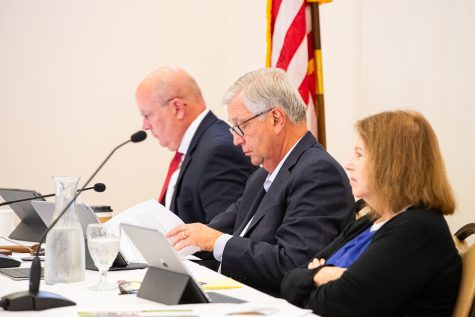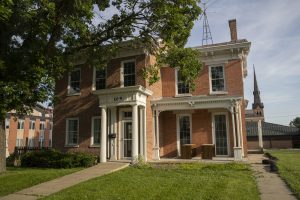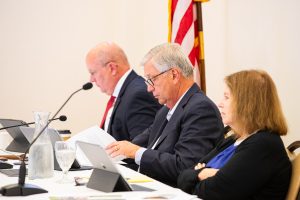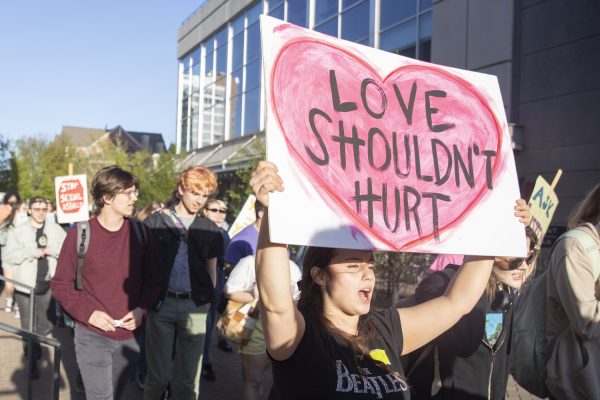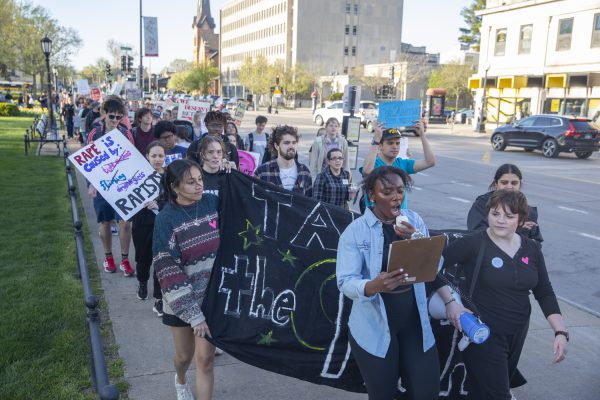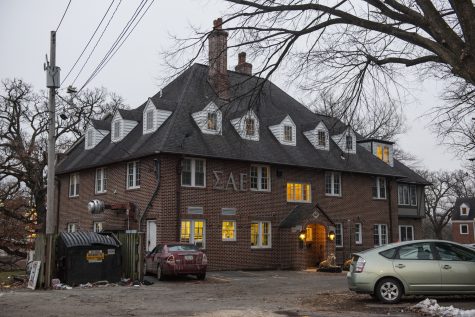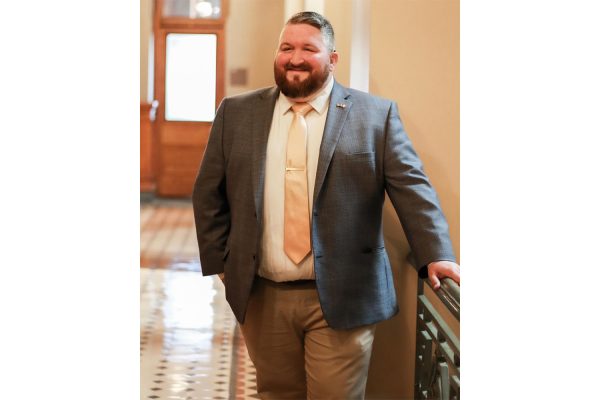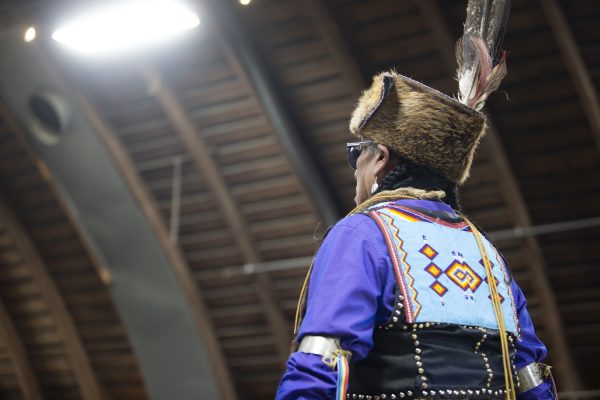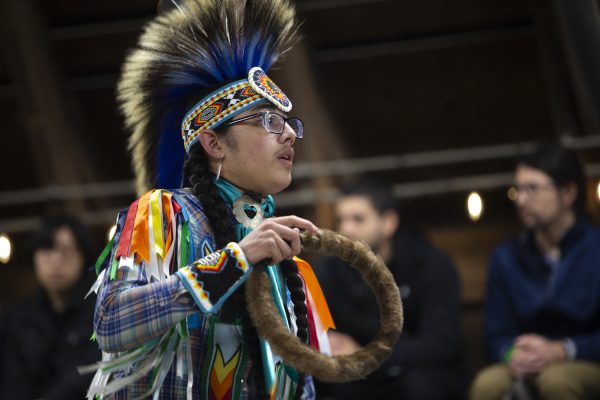Iowa regents discuss institutional response to COVID-19 amid calls to close campuses in the fall
The state Board of Regents read a formal resolution regarding its public universities’ response to the coronavirus, as students express concern about returning to in-person instruction.
University of Iowa President Bruce Harreld addresses the Board of Regents during a meeting at the Iowa State Alumni Center in Ames, Iowa, on Thursday, June 6, 2019.
July 29, 2020
The state Board of Regents read a formal resolution in its virtual meeting on Wednesday that regarded COVID-19 in its public institutions, recognizing in particular the efforts of various campus communities in their response to the pandemic.
The resolution acknowledged that campus operations suffered major disruptions in the spring 2020 semester, after Iowa Gov. Kim Reynolds declared a public health disaster emergency and Regent President Mike Richards declared a state of emergency in March.
“We appreciate the efforts of faculty and staff and students who are forced into quickly adjusting their teaching, working, and learning environments as the pandemic spread,” stated the resolution, which was read in the meeting by Regent Nancy Boettger.
The resolution stated that health care workers at the three regent universities, including the University of Iowa Hospitals and Clinics, were heroes serving on the frontlines of the pandemic by providing critical services to keep Iowans safe and healthy.
RELATED: Q&A: UI president discusses fall plans, COVID-19 responses, the public/private partnership
It added that the State Hygienic Laboratory at the University of Iowa, which has conducted more than 200,000 COVID-19 tests, and the state’s Public Health and Environmental Health Laboratory have done remarkable work.
Campus committees at the UI, Iowa State University, and the University of Northern Iowa have worked hard to establish plans for the fall 2020 semester, the resolution stated, and each have come up with detailed procedures and protocols in an effort to keep the universities safe.
“The countless hours that these selfless and dedicated faculty, staff, and students have put forward to keep our universities operating as safely as possible during these unprecedented times, will always be remembered and appreciated,” the resolution stated.
In a press release on Wednesday, Iowa Student Action called for the regents to keep students, staff, and faculty safe by not reopening university campuses in the fall.
“As they rush to re-open campuses with insufficient safety plans in place, the Regents clearly aren’t making decisions based on public health,” Iowa Student Action lead organizer Denise Cheeseman said in the release. “If they were, these corporate bigwigs would shut down campuses or move all instruction online until it’s safe to return to campus.”
Regent universities have been extremely busy preparing for the resumption of in-person classes in the fall 2020 semester, Richards said in the meeting. People should certainly anticipate, however, that the universities’ plans will continue to be refined, added to, and adjusted if need be, he said.
Richards added that everything people can do makes a difference in the pandemic, whether it be making financial sacrifices or changing personal and social behavior.
“And now we all know the ways that health experts have been telling us that we can help,” Richards said. “Wear a mask, socially distance, and wash your hands frequently … Health and safety has been, and will continue to be, our top priority.”
UI President Bruce Harreld said in the regents’ meeting that the university must work with its community to change its behaviors to mitigate COVID-19 in the coming semester. He noted that the UI has launched a number of initiatives and multiple educational programs in regard to the coronavirus.
People can continue to debate social distancing, Harreld said, but if society is going to survive there needs to be behavioral change in everyone.
“Today, more than ever in our lifetime, we’re struggling with a lack of control,” Harreld said. “… Each of us have the ability to control, in fact, our own actions. My wearing a face mask covering protects you. And making decisions that support our mental health and providing grace to others are all within our control. And I encourage all of us to do so.”



